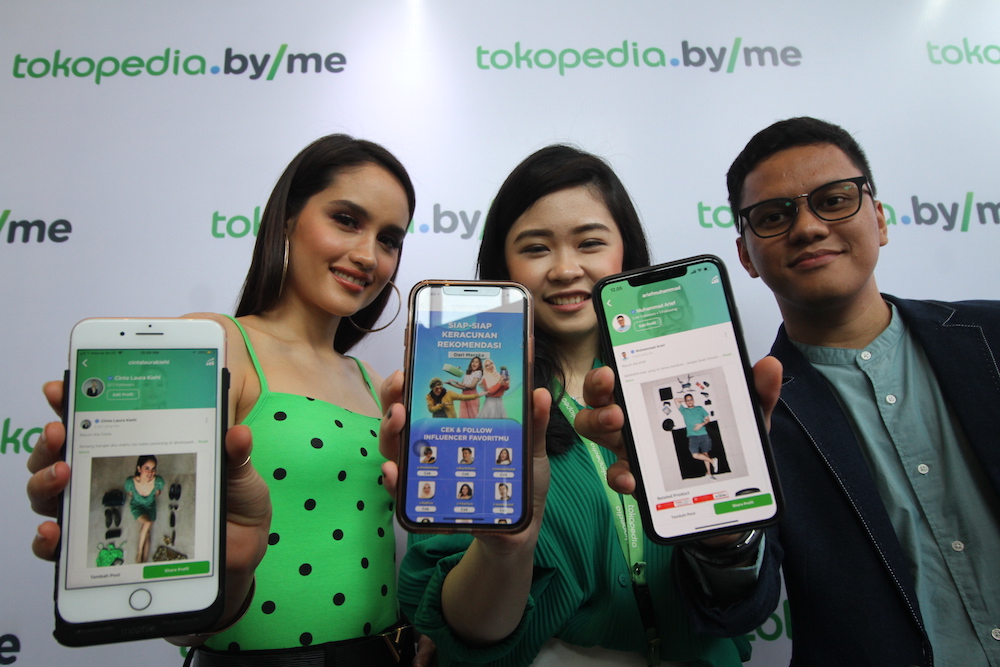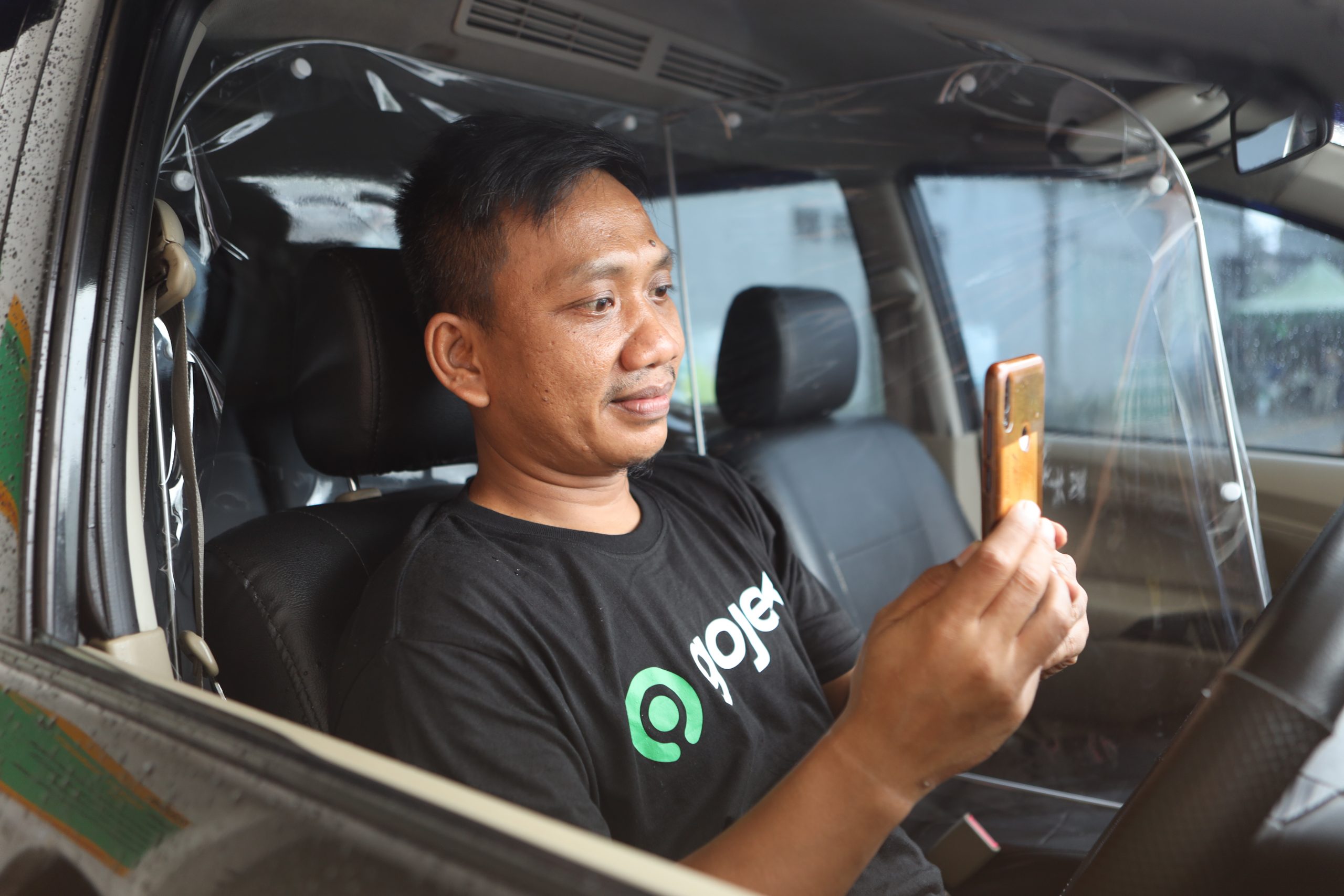In a 2019 interview with Indonesia’s former trade minister Gita Wirjawan, Gojek co-founder and then-CEO Nadiem Makarim was asked whether he envisioned a future where Gojek is the only player in town. Makarim said that monopolies are more for companies that don’t charge consumers for using their services, like Google and Facebook. A super app, which Gojek has aspirations to become, should be part of a duopoly, he argued.
For years, Gojek and Grab have drawn their battle lines within on-demand services, starting with ride-hailing, then food deliveries, fintech, and braids of lifestyle services. Then, in 2020, they made headlines when SoftBank’s Masayoshi Son was rumored to be orchestrating a merger of the two firms. Discussions fell apart in January this year, possibly due to disagreements over regional leadership in the merged venture. The two firms resumed their competition, falling back into the pattern that Makarim described.
However, Gojek is now reportedly in advanced discussions with fellow Indonesian tech giant, Tokopedia, for a different sort of merger: one that will not create a monopoly, but instead go head to head with Sea Group—a mainstay in Southeast Asia’s tech sector that dominates food delivery, e-commerce, as well as payments in the region—and Grab, Gojek’s main ride-hailing competitor.
Gojek and Tokopedia are the two biggest and most successful tech startups in Indonesia, carrying valuations of around USD 10.5 billion and USD 7.5 billion, respectively. Gojek has around 2 million driver-partners and 900,000 SME merchants, while Tokopedia claims to have 9.9 million merchants on its marketplace. Should the two companies fuse their operations, the result will be a powerful tech ecosystem connecting millions of customers, merchants, as well as driver-partners—rooted in Indonesia but regional in footprint.
Both Gojek and Tokopedia declined to comment on speculation related to their potential merger, but recent media reports suggest the two firms are exploring options like a holding company structure, where Gojek and Tokopedia could still operate independently while accessing each other’s ecosystem.
A merger between Gojek and Tokopedia could drive more synergy between the two firms, rather than overlapping services, according to Aldi Adrian Hartanto, VP of investments at MDI Ventures, the corporate investment arm of Indonesia’s state-owned telco Telkom Group, an investor in Gojek.
“They will have the ability to run independently without disrupting each other’s business. And they will have a much bigger narrative as Indonesia’s leading big tech group that dominates consumer internet segments such as ride-hailing, food delivery, e-commerce, and payments,” he told KrASIA.
For instance, Tokopedia would have access to Gojek’s logistics resources for a more efficient delivery service, while Gojek’s digital wallet, GoPay, could increase its transaction numbers by leveraging Tokopedia users. Small and medium-sized enterprises (SMEs) on Tokopedia will also be able to access financial services, including credit, offered by Gojek-backed Bank Jago.
The merger would be also welcomed by Gojek’s drivers’ community, which previously opposed the idea of a union between Grab and Gojek, as drivers will see new channels of income, such as instant or same-day delivery services offered by Tokopedia.
Gojek and Tokopedia already share investor DNA. Both companies are backed by Sequoia Capital India, Google, and Temasek. SoftBank, meanwhile, is Tokopedia’s largest shareholder, and its CEO, Masayoshi Son, has reportedly given his blessing to the possible union.
The combined Gojek-Tokopedia entity would be valued at more than USD 18 billion, eclipsing Grab’s USD 16 billion valuation. Gojek and Tokopedia would have more resources to roll out new products or services, and they would be in a strong position to go public.
Hartanto says the two firms might seek to go public through a special purpose acquisition company, or SPAC. The merger will bring a “big value to the IPO market”, he said.
Also known as blank check companies, SPACs are shell companies that raise funds via public offerings to acquire unspecified enterprises. This type of company doesn’t have a business model of its own beyond these financial transactions. While traditional IPO processes are expensive and time-consuming, SPACs are a cheaper and efficient fundraising option, which is becoming particularly attractive for tech startups in Asia.

Race to hit profitability
Since 2019, tech firms in the region have been saying they intend to hit profitability and go public soon to generate returns for investors. Both Gojek and Grab have affirmed these goals, but the pressure only increased last year, as the pandemic led to significant shifts in how Southeast Asia’s foremost tech companies draw revenues.
“It wouldn’t make sense for private capital investors to cut checks for an entity of such gargantuan scale,” Hartanto said, explaining that both companies are still in negative EBITDA levels, which means they’re not making money yet.
Masana Takahashi, founder of Singapore-based accounting and corporate finance advisory firm Jidobox, said that for Gojek, looking for an ally, such as Tokopedia, might be the safest way before going public.
“If Gojek is suitable for an IPO by itself, would it have the motivation to talk to other companies [for a merger]? It probably wouldn’t. Gojek doesn’t seem ready to go public for whatever reasons. Maybe it is not doing so well financially.” he said.
Gojek’s earliest capital injection was in 2014, when it raised a USD 2 million Series A round. “Gojek raised billions and their investors will need an exit as the maturity of funds will come soon,” Takahashi explained. “Maturity of VC funds is normally seven to ten years. For sure, before 2024, funds will demand an exit from Gojek.”
Grab also first secured a USD 10 million Series A investment in 2014, and the firm is reportedly considering an IPO in New York later this year, where it could raise more than USD 2 billion, the largest overseas share offering by a Southeast Asian firm, according to Reuters.
“With the current activity we’re seeing around IPOs globally, as well as increased SPAC activity in Asia, investors seems to have a large appetite for Asia-focused IPOs. The combined valuation may help Gojek and Tokopedia to attract certain investors, but more interesting is the combined value-proposition that this merger would be able to offer,” said Zennon Kapron, director of fintech research and consulting firm Kapronasia.

Tackling the competition at home
Both Gojek and Tokopedia have been caught up in intensifying competition with Grab and Sea Group on their home turf.
Sea’s Shopee has surpassed Tokopedia as the most visited e-commerce site in the third quarter of 2020 in Indonesia, per data from iPrice rankings, while e-wallet platform ShopeePay has outperformed transactions by Gojek’s GoPay and Ovo from June to August 2020 in the country, according to research by Snapcart and MarkPlus. Sea Group is also tapping the digital banking sector in Indonesia.
Grab, on the other hand, has been beating Gojek in Indonesia’s ride-hailing sector since 2018. It reached a 64% market share back in 2019, while it held a 53% market share in the country’s food delivery sectorin 2020, according to Momentum Works.
The Singapore-headquartered ride-hailing firm has also invested in LinkAja, a payment platform with a stronghold in Indonesia’s tier-2 and tier-3 cities, which could give access to a more varied user base compared to GoPay.
“Payment is one of the most important businesses. Losing it could mean trouble for Gojek,” Takahashi said. “Indonesia is an attractive market because of ‘volume,’ but purchasing power is still low. Gojek and Tokopedia need to acquire massive shares in all the markets they operate in. I don’t have any good reasons to believe Gojek will win international markets while it is losing at home, where it has an advantage as a local player,” he added.
Kapron however said that the Gojek-Tokopedia merger will give them new ammunition to compete. “When you look at the success of other super apps in Asia, it has typically been down to core functionality that provides that daily ‘stickiness’ to the app.”
“For WeChat, it was chats and entertainment, and for Alipay, e-commerce. By merging, Gojek and Tokopedia would have a more comprehensive value proposition that will likely attract more users, and will also allow them to share a more comprehensive data set on the backend,” Kapron added. The data would enable the new entity to provide a wider range of products and services, including digital finance.
Internationally, Gojek is also weaker than Grab. The firm expanded in 2018 in Vietnam under a localized brand name, GoViet, and in 2019 in Thailand with Get. However, in July last year, it announced a brand unification, which, according to sources who spoke to KrASIA, was a “significantly costly move” that exacerbated the company’s financial losses.
As for Tokopedia, the company prefers to stick to its home market and has not expanded internationally. It is unclear how a union between Gojek and Tokopedia will increase their competitiveness in the regional market, as both platforms are losing ground at home and abroad, according to experts.
“A larger company does not necessarily mean a globally successful company. GoJek–Tokopedia will have a much larger base to work from, but that by no means ensures international success,” said Kapron.
“It’s like ‘two number two players’ are joining forces to try to compete with leading players,” another source added.
Ditching Ovo?
A third party that may complicate the Gojek-Tokopedia merger is Indonesia-based e-payment service Ovo, which is the current exclusive payment provider for Tokopedia and Grab in Indonesia.
Grab holds a 44.2% stake in Ovo, while Tokopedia has 42%, per data by research firm M2 Insights. After the merger with Gojek, it is likely that Gojek push its fintech platform, GoPay, into Tokopedia’s ecosystem, eroding Ovo’s exclusivity.
Furthermore, Tokopedia may be obligated to sell its stake in Ovo, as Bank Indonesia prohibits one company from holding controlling interests in more than one payment platform. “The merger entity would push its agenda to make Tokopedia potentially cut ties with Grab, which would be beneficial for the new Gojek-Tokopedia joint venture,” said Hartanto.
Yet, as if anticipating the potential union between Tokopedia and a key competitor, Ovo has been diversifying its tie-ups with e-commerce platforms by inking partnerships with Lazada, Zalora, and Blibli since last year.
For now, Gojek and Tokopedia are staying mum about their next steps and how relationships with Ovo may change. In the meantime, Ovo has been aggressively shoring up its offerings beyond payments. The firm recently partnered with Zhong An to create a digital insurance marketplace, and it launched a new investment product last month in collaboration with mutual fund platform Bareksa, showing that Ovo can do more than handle e-commerce transactions. The financial services space underserves Indonesia’s population significantly, so Ovo still has plenty of room for growth—even without Tokopedia.



